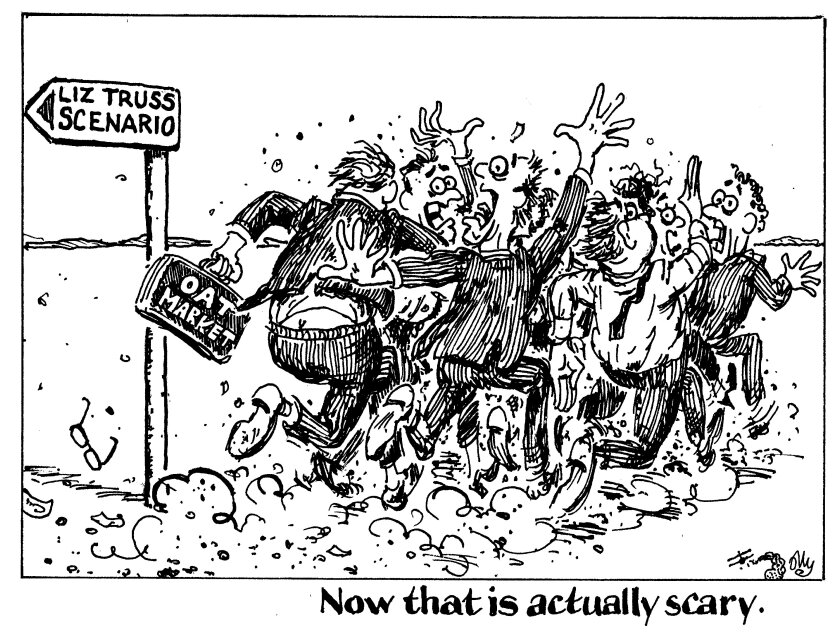She was the UK’s shortest serving prime minister. Liz Truss’s 49 days in office were famously outlasted by the livestream of a wilting lettuce.
But while her tenure was short, her name lives on in bond markets — so much so that it is now being used as a bogeyman by centrist parties in the French parliamentary elections.
Voting for a government led by the far right Rassemblement National party could mean “a Liz Truss-style scenario is possible”, warned Bruno Le Maire, the French finance minister.
In other words, should Marine Le Pen’s RN party gain power and implement its fiscal programme, the bond market vigilantes will gather round, patting their weapons.
François Villeroy de Galhau, governor of the Banque de France, chose not to single out Liz Truss when he joined the discourse this week.
Yet it was obvious whom he had in mind when he alerted politicians that “investors do not like uncertainty” and, whatever the election outcome, “France must clarify its economic strategy and in particular its budgetary strategy”.
Le Pen appears wise to Truss risk, too. She has been quick to reassure financial markets.
Speaking on June 16, at the end of a week when the 10 year French government bond spread over Germany surged almost 30bp wider to nearly 80bp, she pleaded that: “Financial markets don’t really understand the National Rally’s project. They have only heard the caricature of our project. When they read about it, they find it rather reasonable.”
The far right party is said to be courting businesses and has begun to backpedal on some policies. Its proposed €7bn VAT cut on household necessities would be postponed, it was announced earlier this week.
Could Liz Truss’s greatest legacy be that her example saves the French government bond market and, perhaps, even the French Fifth Republic? Maybe.
More certain is that her name has been etched into the bond market's lexicon. ‘Liz Truss scenario': a sudden loss of market confidence triggered by unfunded fiscal policies.


